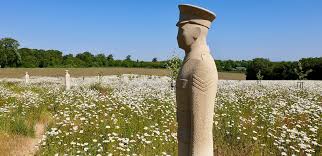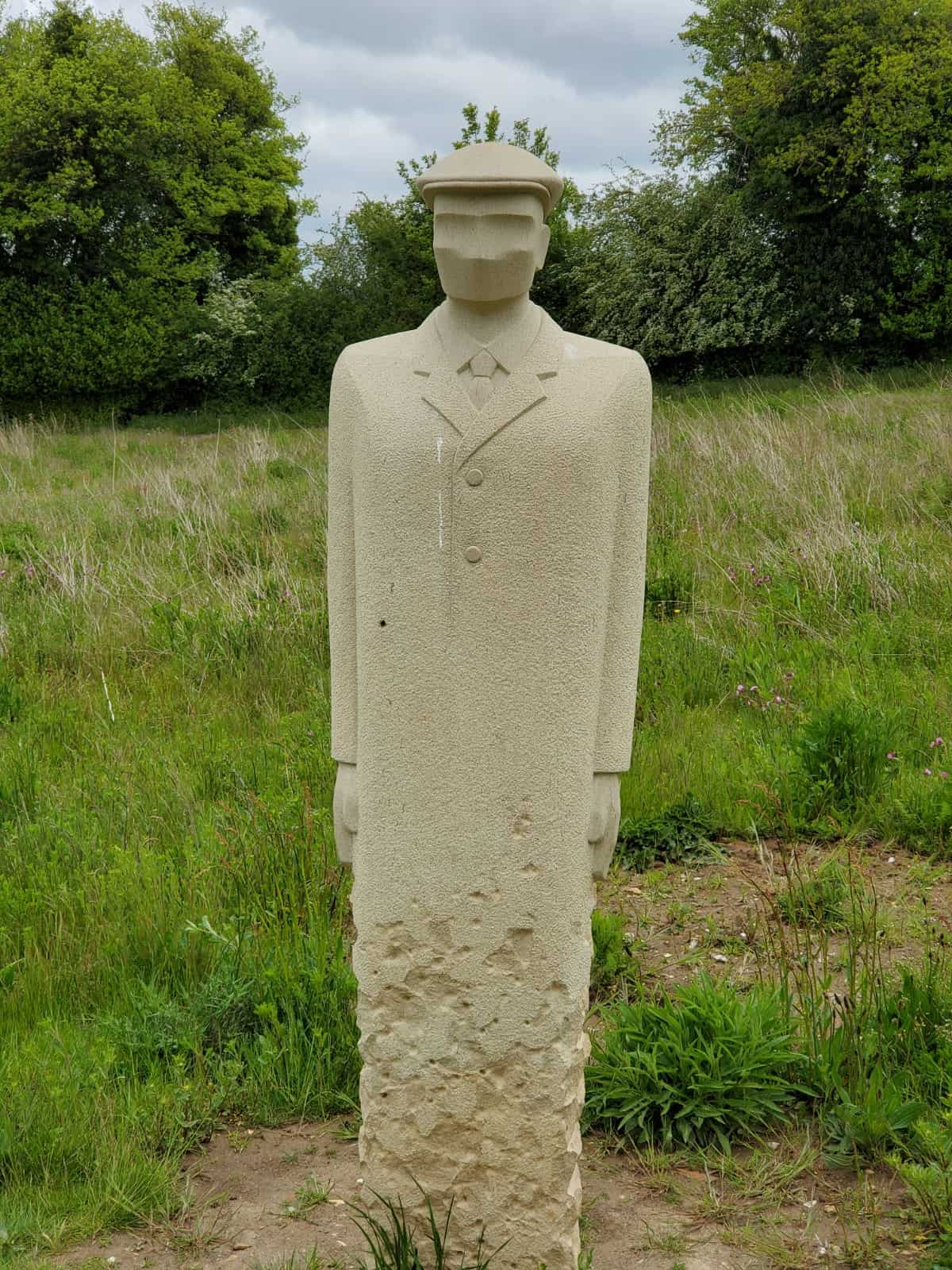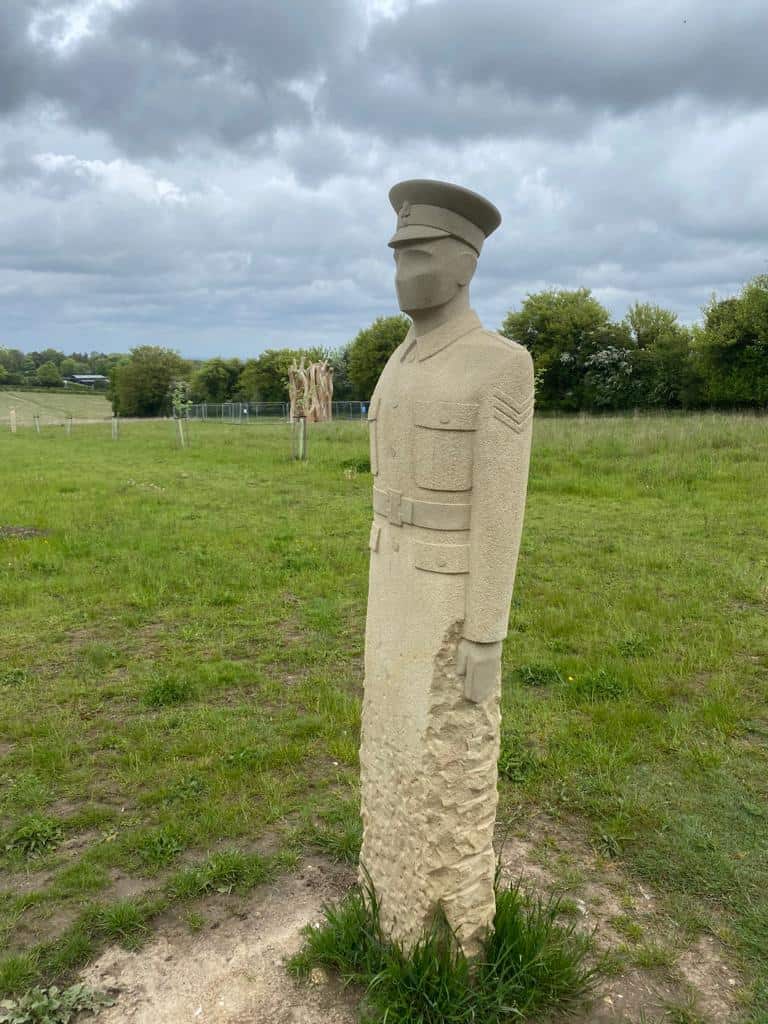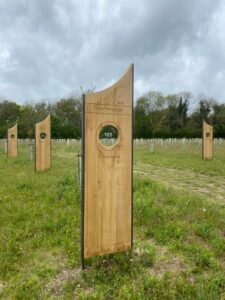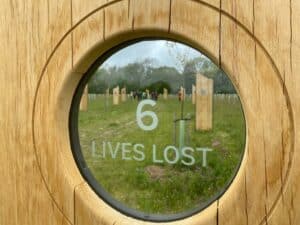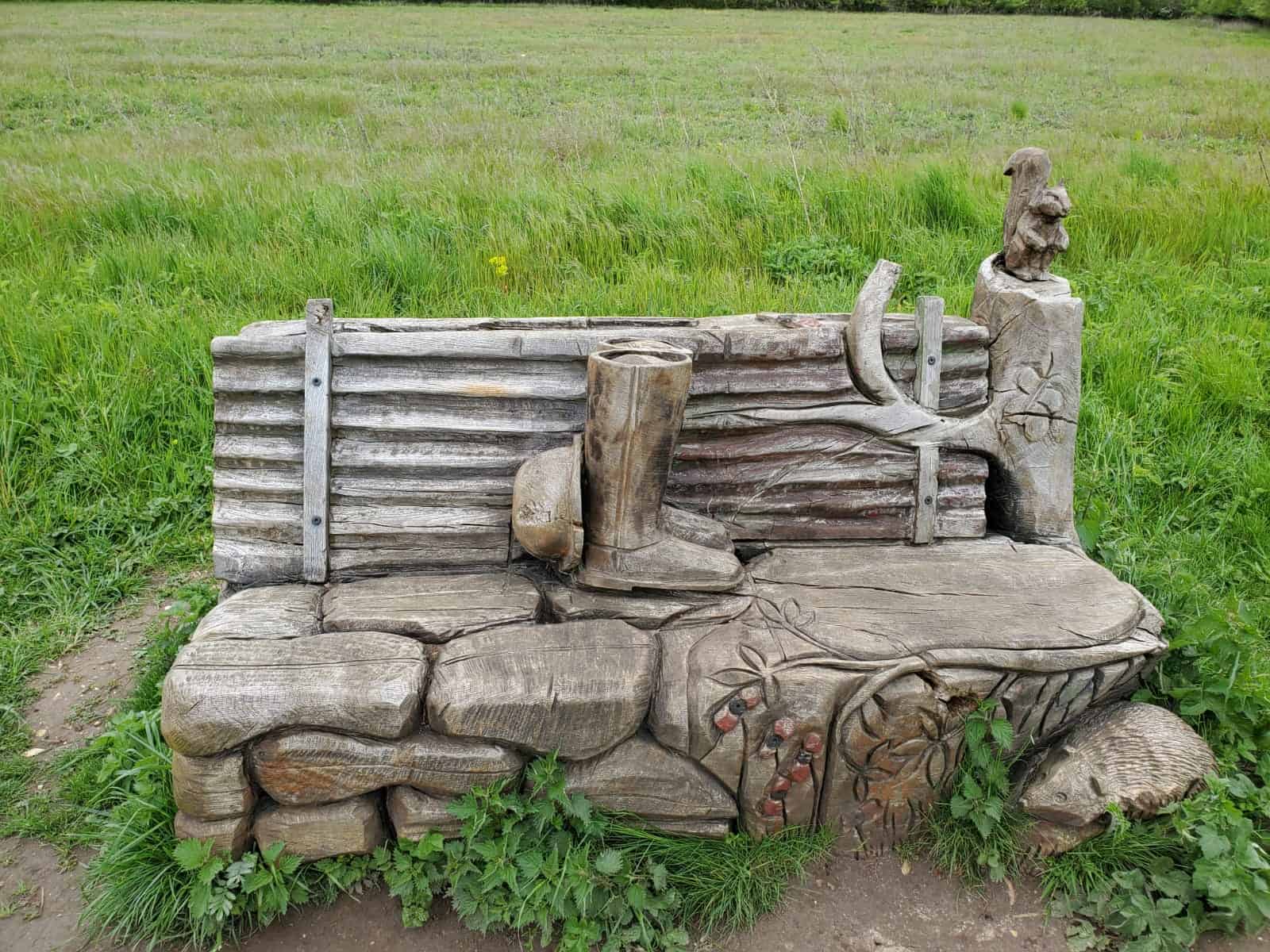Ben Carter has been one of the Society’s younger volunteers for a number of years (he can be seen modelling our SHS fleeces in a photo on our Shop web page). In this article he explains how recent events have led to his interest in butterflies and introduces some of the conservation initiatives being undertaken in and around the Surrey Hills.
Connecting with nature has been very important for me during the lockdown. During breaks from the computer, following a day of working from home last summer, I would often walk to local parks, countryside and common land near to where I live in Haslemere. Making an effort to feel mindful and connect to the natural space I was in when exploring new areas on my doorstep, I began to notice the different butterflies that were fluttering around. I made records and researched what I had seen. These activities really began to develop my interest in butterflies as well as help to get through long periods of lockdown.
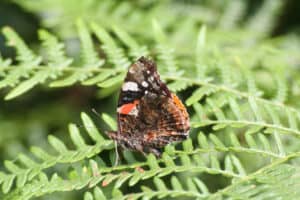
I soon discovered that we are extremely lucky to have 42 different species of butterflies resident in Surrey. Our diverse landscapes and habitats within the county really encourage a wide range of species. These vary from common garden butterflies, such as the Red Admiral and Large White, to delicate and vibrant Blues that inhabit our chalk grassland. Surrey is also the only remaining refuge in the south-east of the elusive Wood White butterfly, which is one of the rarest in the country.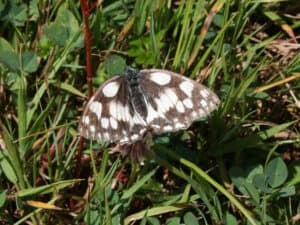
However, it is clear that despite this biodiversity, butterflies face large challenges in our changing world. According to the charity Butterfly Conservation, ‘76% of the UK’s resident and regular migrant butterflies declined in abundance, occurrence or both over the last four decades.’ Luckily, charities such as this are working hard to stabilise these alarming trends by developing habitat restoration projects. There are various exciting projects that exist locally, which require volunteers, and the Surrey branch of the charity has its own excellent website.
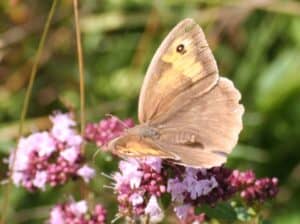 One way for everybody to get involved in conserving butterflies is to take part in the annual ‘Big Butterfly Count’ in July. According to Butterfly Conservation ‘The Big Butterfly Count is a UK-wide survey aimed at helping us assess the health of our environment simply by counting the amount and type of butterflies we see.’ The exciting thing about the count is that anyone can take part, anywhere they like. You could count butterflies from your garden or out in the countryside on a walk. When the next count takes place this summer, I urge everyone to get involved and record what they see. It is an enjoyable experience and provides crucial scientific data.
One way for everybody to get involved in conserving butterflies is to take part in the annual ‘Big Butterfly Count’ in July. According to Butterfly Conservation ‘The Big Butterfly Count is a UK-wide survey aimed at helping us assess the health of our environment simply by counting the amount and type of butterflies we see.’ The exciting thing about the count is that anyone can take part, anywhere they like. You could count butterflies from your garden or out in the countryside on a walk. When the next count takes place this summer, I urge everyone to get involved and record what they see. It is an enjoyable experience and provides crucial scientific data.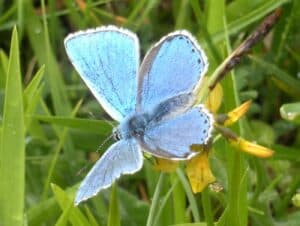
I don’t profess to be a butterfly expert, but taking part in the Big Butterfly Count last year has really inspired me to join Butterfly Conservation so I can learn more about these amazing, beautiful and important insects. With lockdown easing and being allowed to travel further afield, I am looking forward to discovering more species on my walks. There are still so many butterflies for me to discover within the amazingly varied landscapes of the Surrey Hills.



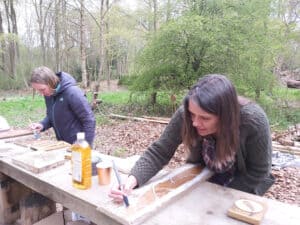
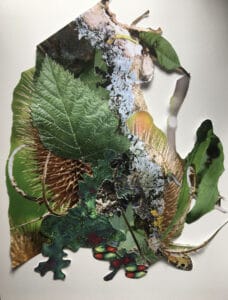 This year their exciting artworks include textile hangings, ceramic egg forms and navigation markers. Fine Art MA student Noelle Genevier creates stunning collages and she will be developing her work by finding a way to waterproof these. They will wrap around the trees in an incredible display of images, textures and colours. This is just one of twelve artworks you can see. A
This year their exciting artworks include textile hangings, ceramic egg forms and navigation markers. Fine Art MA student Noelle Genevier creates stunning collages and she will be developing her work by finding a way to waterproof these. They will wrap around the trees in an incredible display of images, textures and colours. This is just one of twelve artworks you can see. A 
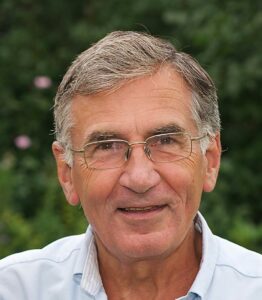 Patrick Mannix is a local resident and has been a practicing owner/operator of Sandhurst Copse & Sheepwalk woodland in the Surrey Hills AONB for the last 20 years. He has lectured and hosted visits by the Surrey Hills Society and many members take advantage of his “managed access” system, giving permission to walk in the woodland. Interacting with nature every day, observing and learning, he has been curious about nature and natural processes since his grandfather taught him the names of trees in the 1940s. Now, as a grandfather himself, his concerns are about the world our grandchildren will grow up in and how we can learn to respect our natural environment before it is too late.
Patrick Mannix is a local resident and has been a practicing owner/operator of Sandhurst Copse & Sheepwalk woodland in the Surrey Hills AONB for the last 20 years. He has lectured and hosted visits by the Surrey Hills Society and many members take advantage of his “managed access” system, giving permission to walk in the woodland. Interacting with nature every day, observing and learning, he has been curious about nature and natural processes since his grandfather taught him the names of trees in the 1940s. Now, as a grandfather himself, his concerns are about the world our grandchildren will grow up in and how we can learn to respect our natural environment before it is too late.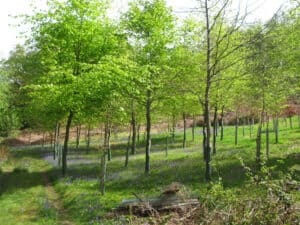

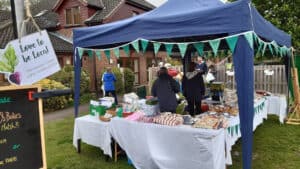 Many of us are giving much more thought to our health and wellbeing since the pandemic and have developed a greater interest in the provenance and traceability of our food. We have also become much more aware of our local community and shown an increasing desire to buy local. We are lucky in Surrey to have an array of wonderful products that are grown and produced locally. What better way can there be to support our local producers than buying food from one of Surrey’s farmers’ markets?
Many of us are giving much more thought to our health and wellbeing since the pandemic and have developed a greater interest in the provenance and traceability of our food. We have also become much more aware of our local community and shown an increasing desire to buy local. We are lucky in Surrey to have an array of wonderful products that are grown and produced locally. What better way can there be to support our local producers than buying food from one of Surrey’s farmers’ markets?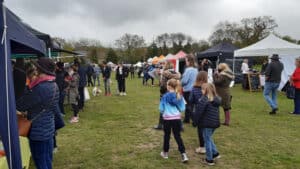
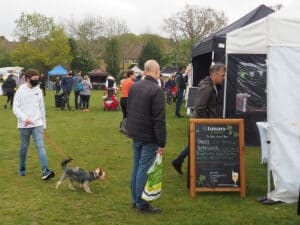

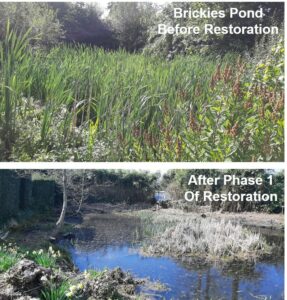
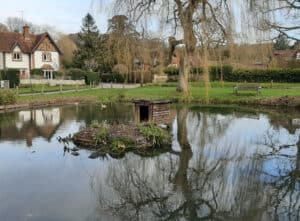
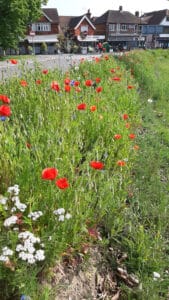


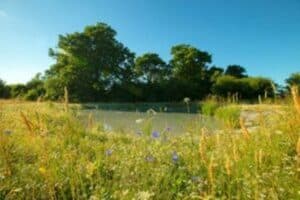
 As a Society member you already receive our regular paper and electronic newsletters, which provide in-depth commentary on a wide variety of interesting aspects of the Surrey Hills. You also receive our regular mail chimps that alert you to the events that are organised by the Society for its members.
As a Society member you already receive our regular paper and electronic newsletters, which provide in-depth commentary on a wide variety of interesting aspects of the Surrey Hills. You also receive our regular mail chimps that alert you to the events that are organised by the Society for its members.